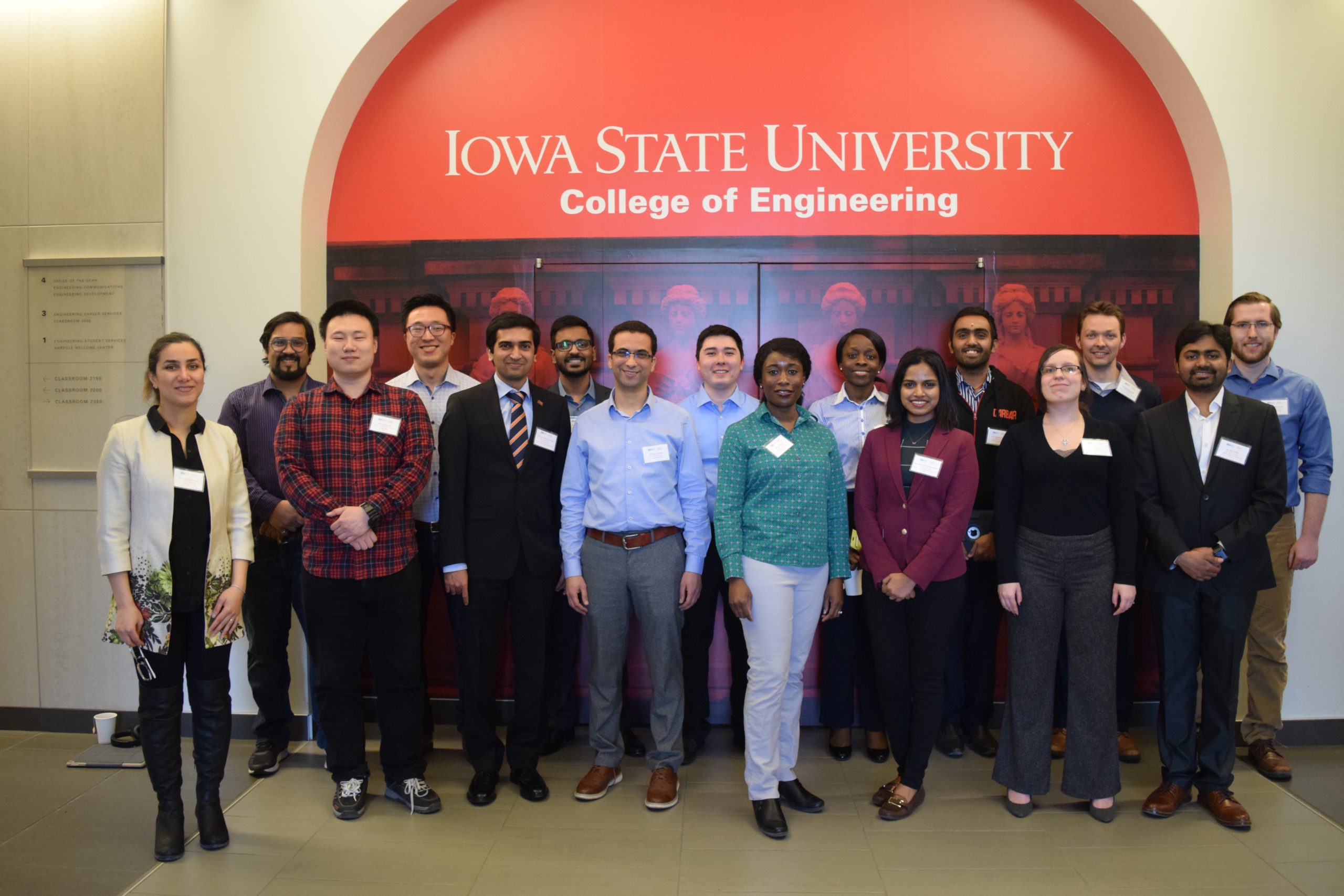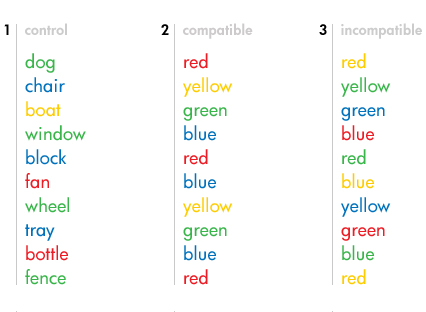March 7 – 8, 2020: 2020 Midwest Graduate Student SEM Symposium
written by Dr. Sarah Bentil (Director, The Bentil Group)
For full details of the symposium, visit the following page: https://www.me.iastate.edu/sbentil/2020/03/29/2020-midwest-graduate-student-sem-symposium/.
Dr. Bentil was the chair and hostess of the 2020 Midwest Graduate Student SEM Symposium. This symposium provides an opportunity for graduate (and undergraduate students) at Midwestern Institutions to network with their peers and faculty, while learning about the field of experimental mechanics.
Dr. Christian Franck was the keynote speaker. The graduate student presenters were from institutions such as Iowa State University, Michigan Technological University, University of Illinois, and University of Wisconsin.
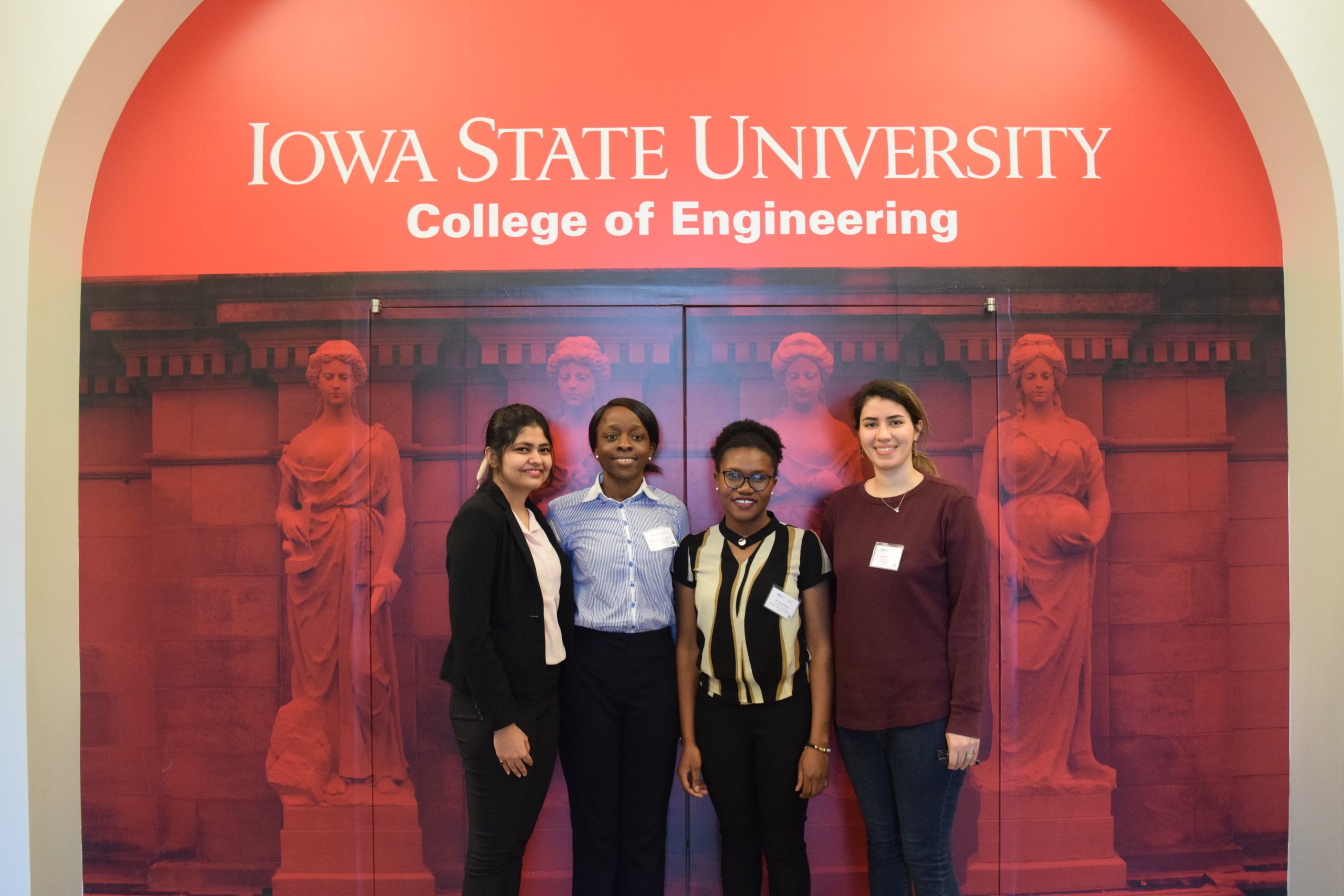
Session Chairs (from left to right): Kanika Lamba, Oluwaponmile Afuwape, Winnie Kiarie, and Mehrnoosh Taghavimehr
June 13, 2019: STEM InCYte Summer Day Camp
written by Jenny Marsh (Neuroscience Ph.D. student at The Bentil Group)
STEM InCYte Summer Day Camp, directed by Dr. Christa Jackson, is designed to help children explore and integrate STEM (science, technology, engineering, and mathematics) through hands-on projects and real-world applications. At the camp, children have the opportunity to explore different areas of STEM by participating in activities with various Iowa State University faculty and their students.
Jenny Marsh and Ling Zhang, Ph.D. students from The Bentil Group, exposed the children to a variety of biomedical engineering and neuroscience activities.
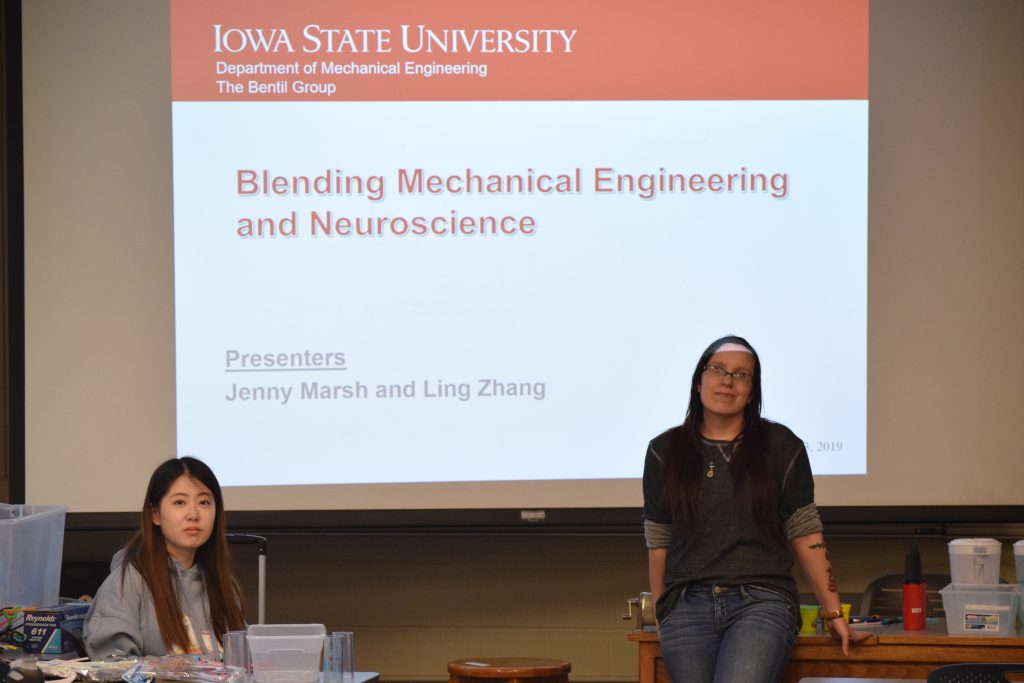
Jenny Marsh (right) and Ling Zhang (left) awaiting the children’s arrival at the STEM InCYte Summer Day Camp.
To explore biomedical engineering, the children created blocked “arteries” using plastic tubing and play dough. Then, the children had to fabricate a prototype device to clear the blockages. The children worked in groups and participated in discussions involving problems that they may encounter if removing blockages from human arteries. There was also a discussion on the importance of keeping our arteries clean.
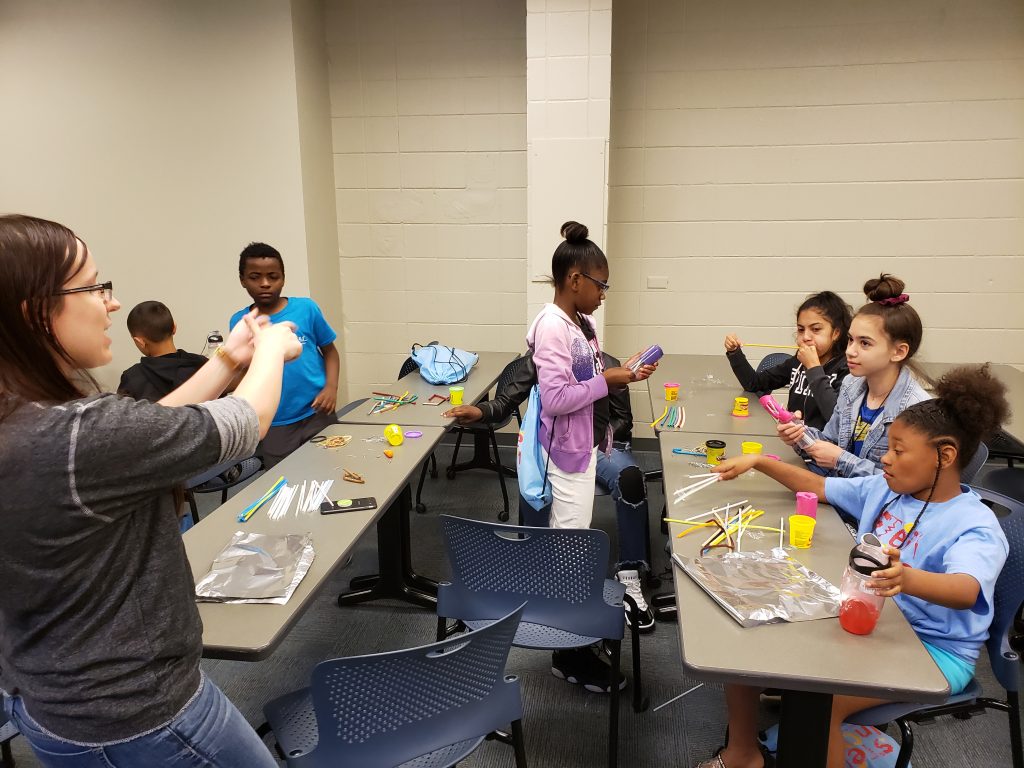
Jenny Marsh providing instructions to the students, during the blocked artery activity.
The neuroscience activities involved the children learning about the brain’s anatomy, by creating neurons from pipe cleaners. There was also a discussion on how brain cells send signals.
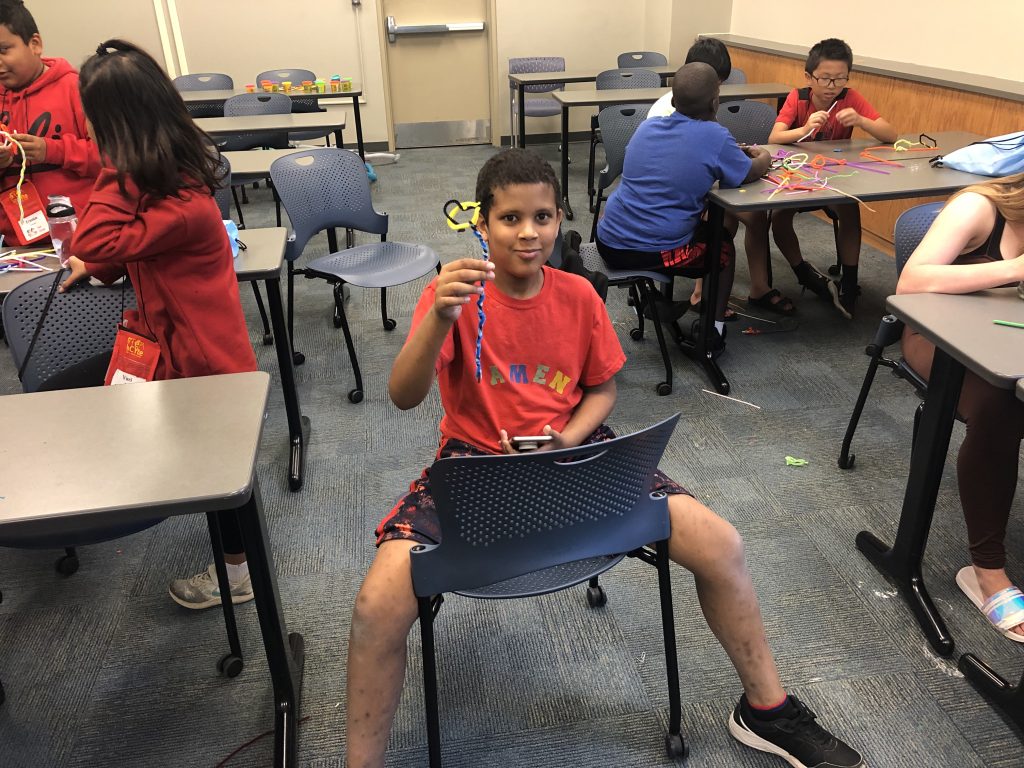
A student proudly showcases his completed neuron.
Finally, all children were able to test their brains’ reaction time with a classic Stroop Task.
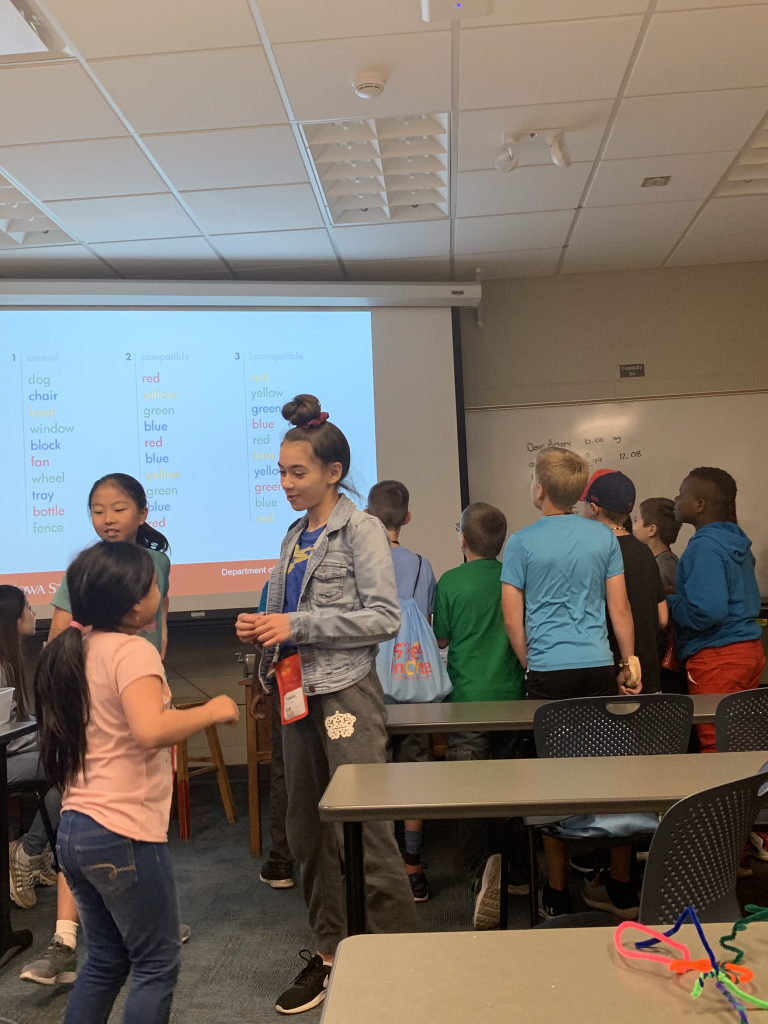
Students participating in the Stroop Task.
Try the Stroop Task!
Say the COLOR of each word in each column out loud, and as fast as you can.
Learn more about the Stroop Effect and what your results mean by visiting the following link: http://www.whatispsychology.biz/about-stroop-effect-definition.
Visit the following link to learn more about STEM InCYte camp: https://sites.google.com/view/stemincyte/home.
March 30, 2019: 3rd Annual STEM Fest
written by Anna Buchholz (education and outreach coordinator for The Bentil Group)
Anna Buchholz, Megan Beck, Annastacia McCarty, Lucas McPherren, and Jenny Marsh hosted The Bentil Group’s outreach table for over 2000 guests at the 3rd Annual STEM Fest. STEM Fest is a one-day event held on the Iowa State University campus to provide elementary aged students a chance to learn about Science, Technology, Engineering and Math (STEM), through hands-on activities provided by campus departments, student organizations, and companies.
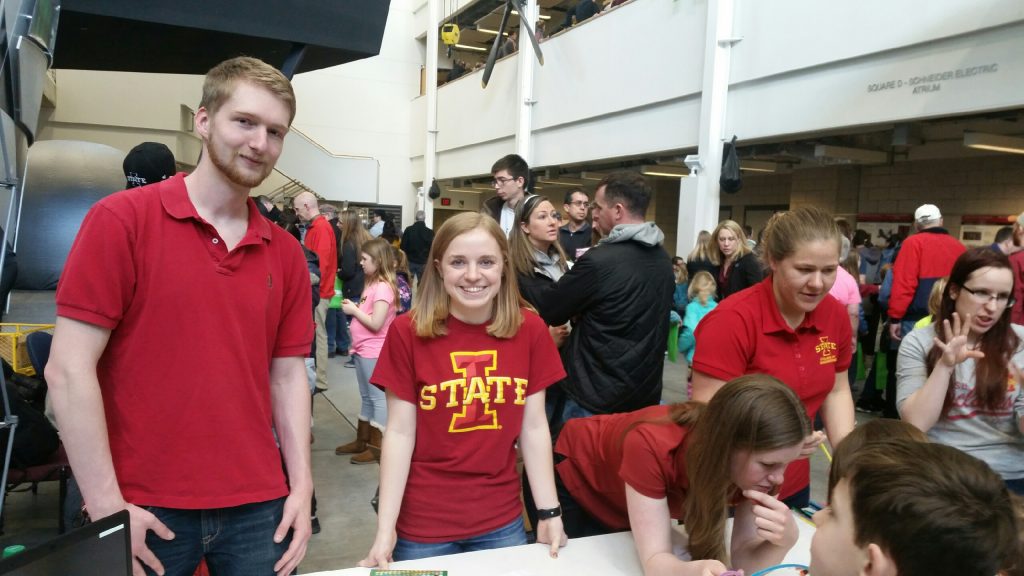
The Bentil Group members at the 3rd Annual STEM Fest. Members from left to right are: Lucas McPherren, Anna Buchholz, Annastacia McCarty, Megan Beck, and Jenny Marsh.
STEM Fest is a collaboration between Ames Laboratory, Program for Women in Science and Engineering (WiSE), North Central Iowa STEM Hub, Chemical Engineering (in kind), and The College of Liberal Arts and Sciences (in kind).
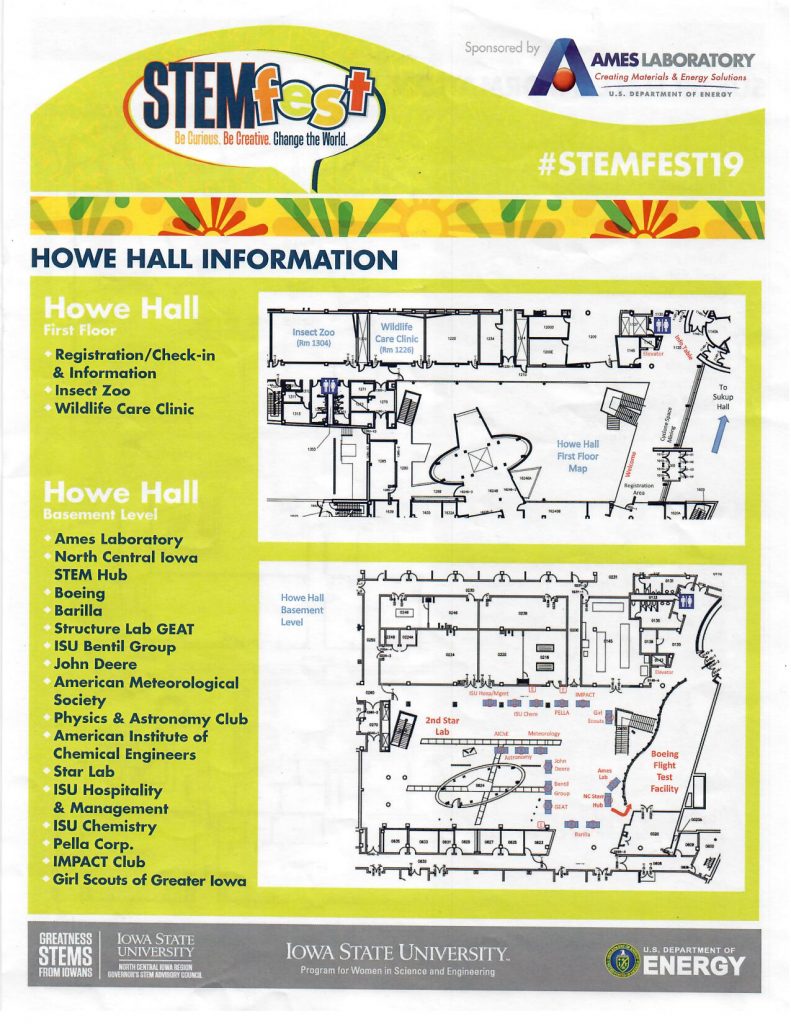
Flyer from STEM Fest listing ISU Bentil Group (i.e. The Bentil Group).
During STEM Fest, participants and their families were able to ask questions about The Bentil Group’s research. Participants were shown a video displaying the oxy-acetylene shock tube in action, leading to increased curiosity about how the shock tube functions and how it is beneficial to The Bentil Group’s research.
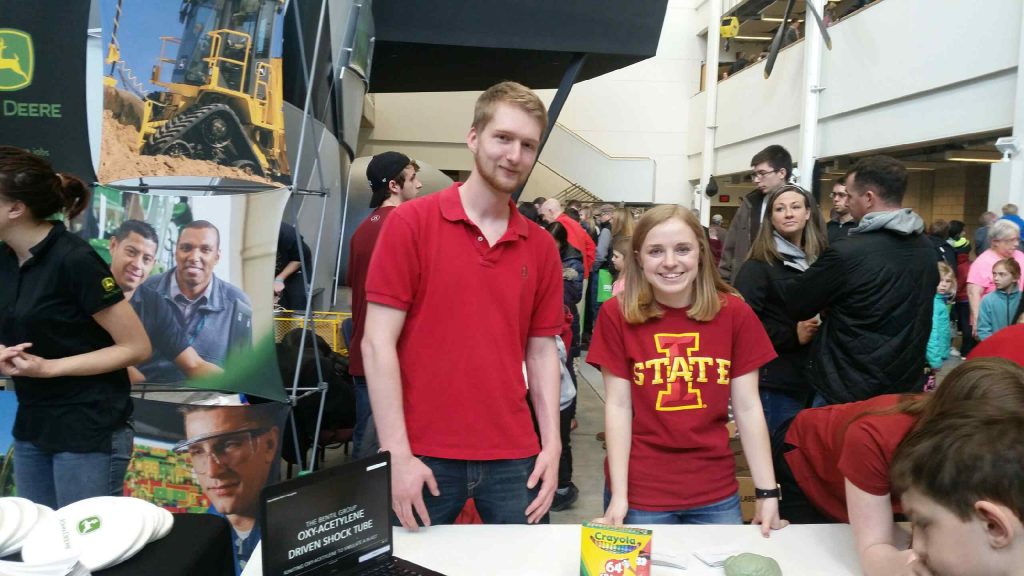
Lucas McPherren and Anna Buchholz standing next to the laptop used to play the oxy-acetylene driven shock tube video.
Brain models were laid out for participants to better understand the brain’s shape, size, and function.
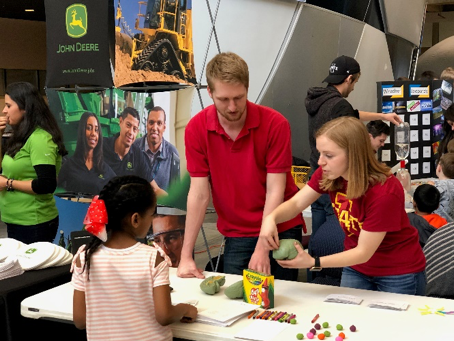
Anna Buchholz holding a brain model, as she explains the brain’s function to an elementary aged student participant.
The crowd favorite, at The Bentil Group’s outreach table, were the pipe cleaner neurons made by the participants. A step-by-step instruction of how to make neurons was presented to the participants, as well as an explanation of the various parts of neurons and its associated function. Participants really engaged in this hands-on activity, especially when they were able to make “fast” neurons by adding myelin to their axons. The participants were also able to take home a word search featuring the different parts of the brain and words from the discussion on shock tubes and shock waves. An eraser, in the shape of a brain, was also given to the participants. The brain eraser served as a reminder of their time spent at The Bentil Group’s table learning about shock tubes and the brain.
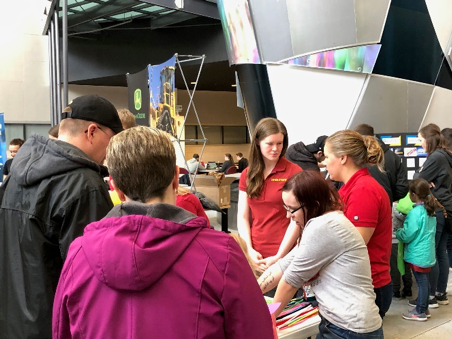
Jenny Marsh (right) providing instructions on how to make neurons out of the pipe cleaners.
January 20, 2019: First Lego League State Championships
written by Anna Buchholz (education and outreach coordinator for The Bentil Group)
Anna Buchholz, Megan Beck, Annastacia McCarty, and Lucas McPherren volunteered for several hours in the outreach room, at the Iowa First Lego League State Championships held in Ames Iowa on January 20, 2019. Here, student participants and their families were able to walk up to The Bentil Group (TBG) members and ask questions about each of the member’s research activities.
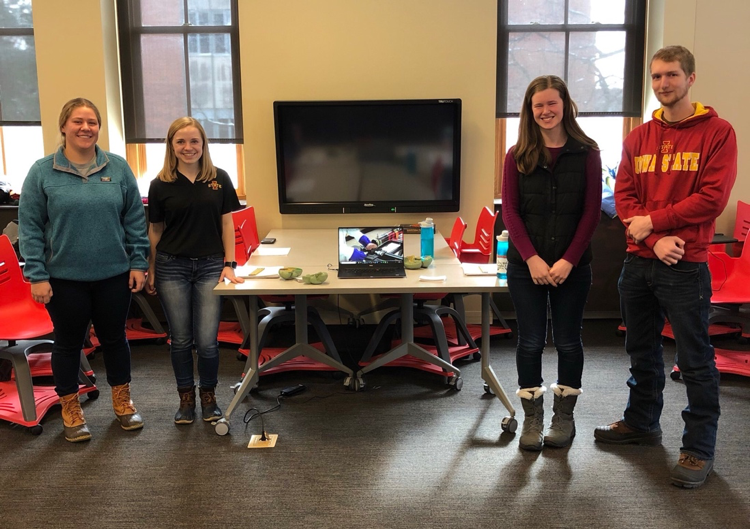
The Bentil Group members at the 2019 First Lego League State Championships. Members from left to right are: Megan Beck, Anna Buchholz, Annastacia McCarty, and Lucas McPherren.
Participants and their families were shown a video about the shock tube, which featured several members of The Bentil Group. This led to increased curiosity about how this research is beneficial, and why it is important.
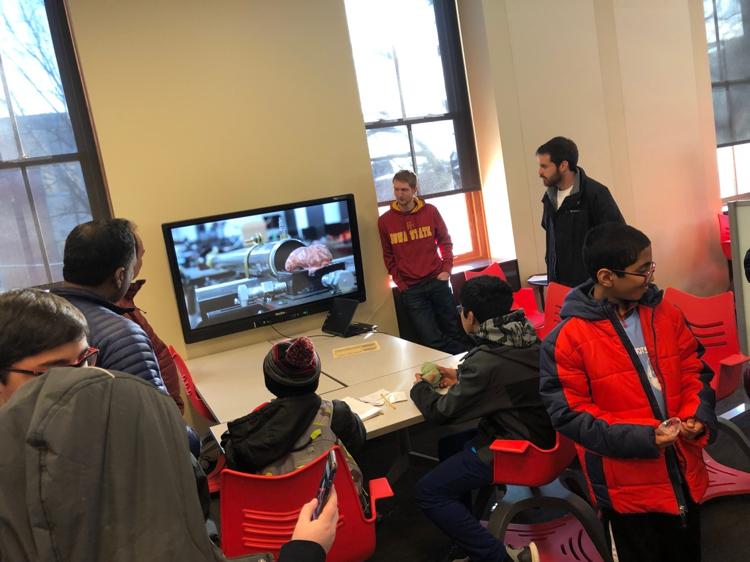
Lucas McPherren (right of the monitor) sharing the video of the shock tube.
Foam brain models were used as props, during the explanation of the various brain regions and its corresponding function(s). The student participants and their families were also able to take a word search with them, or work on the word search during the presentation by TBG members. This word search featured the different parts of the brain, along with words from the discussion such as, “shock tube” and “shock wave”.
January 15, 2019: Visit to a 5th Grade Class at Edwards Elementary School
written by Anna Buchholz (education and outreach coordinator for The Bentil Group)
On January 15, 2019, Anna Buchholz and Lucas McPherren visited Mr. Douglas’ 5th grade class, at Edwards Elementary School in Ames, Iowa. During their visit, Anna and Lucas taught Mr. Douglas’ students about the importance of the brain and how shock waves can damage the brain.
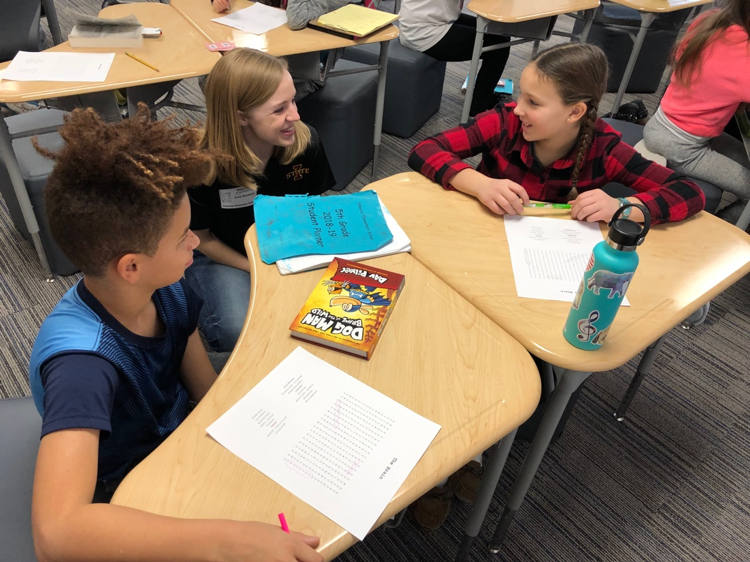
Anna Buchholz (center) discussing the brain with 5th grade students.
Anna and Lucas each presented information about the different regions of the brain, and also shared their research involving brains exposed to shock waves. A short video featuring several members of The Bentil Group (TBG) was shown, to explain how shock waves are created using custom-built shock tubes by members of TBG. The video intrigued many of the students. Following the video, the class completed a word search featuring the different parts of the brain and keywords heard throughout the presentation, such as “shock wave” and “shock tube”.
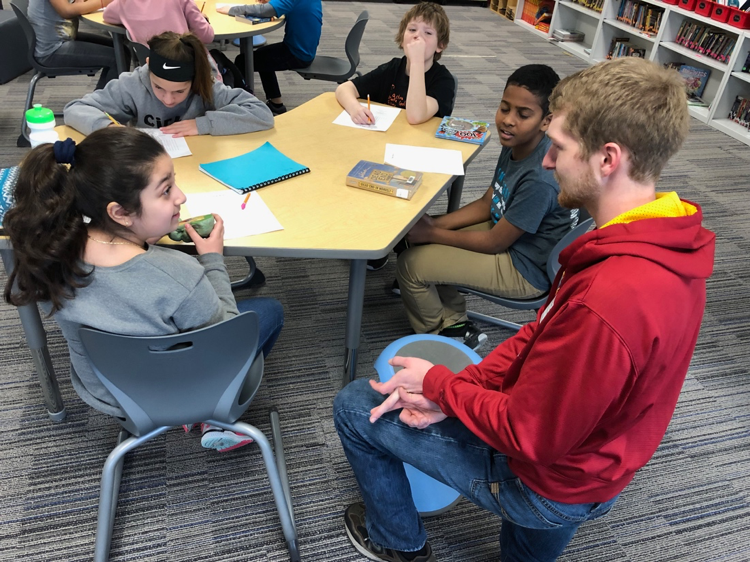
Lucas McPherren (kneeling) discussing the brain with 5th grade students, while they are working on the word search.
The 5th grade students also examined foam models of the brain and learned more about the function of the different regions of the brain. Students asked several “what if” questions, to better understand how the brain function will be different given various scenarios that would result in brain trauma.
The feedback from the elementary school visit was positive, with many of the students saying that the video did an excellent job explaining the shock tube. Students also mentioned that the video helped to clarify their lingering questions that remained, after the pre-video discussion introducing the shock tube.

